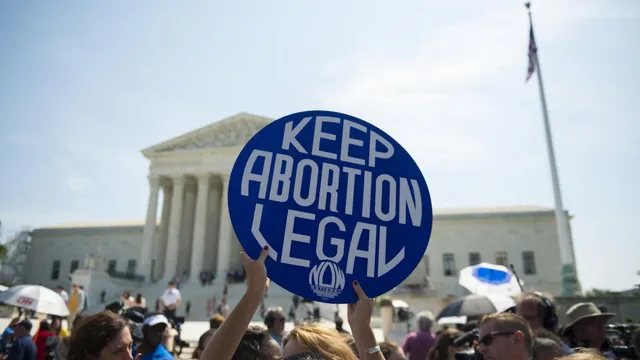
Illinois official investigates police for sharing abortion data
2025-06-13 09:41- Mount Prospect Police Department shared license-plate data with a Texas sheriff seeking a woman who had an abortion, violating state law.
- Illinois Secretary of State Alexi Giannoulias initiated an investigation into this sharing of data, which also included information on undocumented immigrants.
- This incident highlights concerns over surveillance and tracking practices regarding women seeking abortions in the wake of Roe v. Wade being overturned.
Express your sentiment!
Insights
In March 2023, the Illinois Secretary of State Alexi Giannoulias initiated an investigation into the Mount Prospect Police Department after allegations that it violated state law by sharing data from automatic license-plate readers with a Texas sheriff. This investigation is part of the enforcement of a new law, which was implemented to prevent the misuse of license-plate data to track women seeking abortions or identify undocumented immigrants. The concerns arose following the Supreme Court's 2022 decision to overturn Roe v. Wade, leading Illinois to be a refuge state for those seeking abortion services. The Mount Prospect Police Department allegedly provided license-plate data to the sheriff in Johnson County, Texas, who was attempting to locate a woman due to concerns from her family regarding her self-administered abortion. In addition to sharing abortion-related data, the department is also reported to have shared information externally concerning undocumented immigrants, leading to further scrutiny and potential violations of the law. Records indicated that there were 262 searches related to immigration matters performed by the Mount Prospect Police between January and April 2023. Giannoulias stated that the incident highlights the very reason the Illinois law was enacted: to protect women from being tracked and possibly prosecuted when seeking abortion services across state lines after Roe v. Wade was overturned. The implementation of the law aims to ensure automatic license-plate recognition technology is used properly and within its intended scope, which includes applications for tracking criminals or missing persons but prohibits its use for surveillance that endangers individual rights. The occurrence was highlighted by a report from the website 404 Media. To prevent future violations, Giannoulias is establishing an audit system ensuring that police departments adhere to the law. Furthermore, the private company Flock Safety, which operates a significant number of the license-plate cameras, was instructed to block access to 62 out-of-state agencies seeking data related to abortion or immigration. The company has also begun flagging requests using these terms to enforce compliance. This response indicates the state's dedication to protecting individual privacy and legal rights in light of restrictive abortion laws enacted in other states since the Supreme Court’s decision, showcasing the ongoing tension surrounding reproductive rights across the United States.
Contexts
The overturning of Roe v. Wade has led to significant shifts in state laws regarding abortion access across the United States. With the Supreme Court's decision in June 2022, states were granted increased autonomy to regulate or restrict abortion procedures, resulting in a patchwork of laws that differ markedly from one state to another. Some states, particularly those with Democratic leadership, have moved to strengthen abortion rights, enacting laws to protect access and expand reproductive healthcare services. Conversely, many Republican-led states have swiftly implemented restrictive measures, including total bans or severe limitations on abortions, often with few exceptions. These changes reflect deepening ideological divides within the country and highlight the ongoing debates surrounding women's rights, bodily autonomy, and healthcare access. The political implications of these legal changes are profound, influencing not only voters' decisions but also shaping local and national election landscapes. States that have enacted restrictive abortion laws often see activists mobilizing both for and against such measures, which presents unique challenges and opportunities for political parties. In states where abortion access has been curtailed, public opinion may shift, leading to potential repercussions for elected officials who support stringent laws. Additionally, the economic and social implications of these laws cannot be underestimated, as they may significantly affect healthcare access, women's rights, and overall public health outcomes. In light of the Roe v. Wade overturn, many states are also considering or have enacted legislation designed to safeguard against potential legal challenges. This includes codifying existing rights at the state level and providing funding for reproductive health services. Legal battles are anticipated as organizations challenge restrictive laws, arguing they violate state constitutional rights or infringe on personal freedoms. The contrasting legal landscapes may lead to increased interstate migration, with individuals seeking access to abortion services moving to states with more liberal laws, thereby impacting local economies and demographics. Ultimately, the impact of the Roe v. Wade overturn on state laws is far-reaching, with implications that extend beyond reproductive rights. As the landscape continues to evolve, ongoing public discourse and legal challenges will shape the future of abortion access in the United States. The decisions made in individual states will continue to reflect the broader societal attitudes toward reproductive health, paving the way for ongoing contributions to the national conversation about women's rights and healthcare.